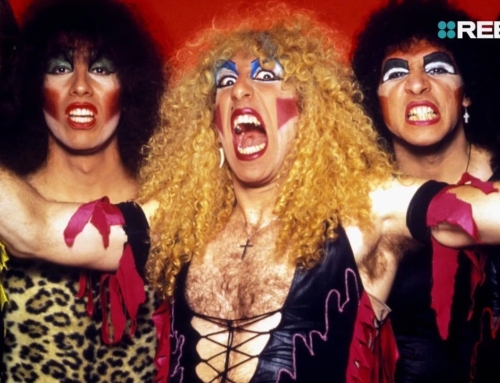SYSTEM OF A DOWN singer Serj Tankian has called out the members of LED ZEPPELIN for commemorating the 14th anniversary of their concert for a charity formed by Atlantic Records founder and CEO Ahmet Ertegun, a man Serj says gave his philanthropic support to Turkey’s denial of the Armenian Genocide.
After ZEPPELIN guitarist Jimmy Page took to his Instagram on Friday (December 10) to share a few photos of the 2007 performance, Serj regrammed the post and added the following message: “Dear Mr. @jimmypage. Its very admirable that @ledzeppelin played a tribute show in 2007 for Ahmed Ertegun as the man who signed your band to Atlantic records. What you likely don’t know is that man spent millions of dollars on think tanks and chairs at various US universities all with the goal of denying the #ArmenianGenocide. There is absolutely no honor in that I’m sure you’ll agree.”
Earlier this year, Tankian, an Armenian-American vocalist whose grandparents were survivors of the Armenian Genocide, spoke to RT‘s “Going Underground” about his meeting with Ertegun, who was the son of a Turkish ambassador. He said (as transcribed by BLABBERMOUTH.NET): “I had a band that we had signed to my imprint, to my label, and there were a number of record companies interested in doing a distribution deal. So we met up with Universal Records, Atlantic Records at the time, and a few others in New York with the band. And after the meeting, I remember the CEO of Atlantic saying, ‘Hey, do you wanna meet the old man? He’s still here. His office is right next door.’ And I’m, like, ‘Ertegun?’ I’m, like, ‘Yeah, I’d love to.’ He signed Ray Charles and LED ZEPPELIN and all these bands. So I went in and sat down with him and had a nice 10-minute chat.
“I can’t tell you anything else, but I got an inkling that he had some defensive aspect of me being Armenian,” he continued. “When I said, ‘Listen, just so you know, I’m Armenian. I grew up in Los Angeles,’ and this and that, and he kind of got defensive. And it didn’t really affect me much. So I got on Google and I typed ‘Ahmet Ertegun‘ and I typed ‘Genocide’ after, and I realized that he had been responsible for funding foreign policy institutes and chairs at universities who hired authors and writers that denied the Genocide. And that was an awakening for me.”
Tankian went on to say that he reconnected with Ertegun at a later date. “He called me, and he said, ‘I think the Armenian Genocide should be recognized,'” Serj recalled. “And I said, ‘Okay. Great. Why don’t you write it on a letterhead and send it to me? And I won’t publicize it unless my back is against the wall with my community.’ And he said, ‘I can’t do that, because I have homes in Turkey. I don’t know what would happen to that.’ And I’m, like, ‘Then don’t do it. I wouldn’t want any violence enacted upon you or your family or anyone else.’ But it was very clear that that was an incendiary issue. And even though he was very close, he said, to the prime minister and the government officials there, he didn’t wanna take that step.”
Shortly after Ertegun‘s 2006 death, Armenian-American writer Harut Sassounian revealed that he had met with Ahmet a couple of years earlier to discuss Armenian-Turkish issues. He also said that Ertegun was considering the possibility of issuing a public statement on the Armenian Genocide prior to his passing.
In 2019, both the U.S. House and Senate passed a bill declaring that the killing of 1.5 million Armenians by the Ottoman Turks was, in fact, a genocide.






